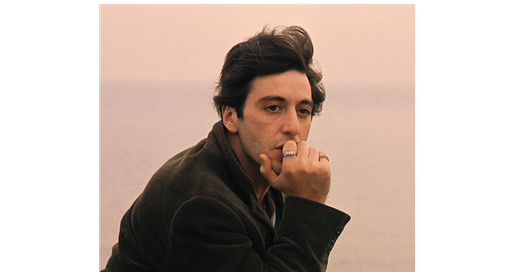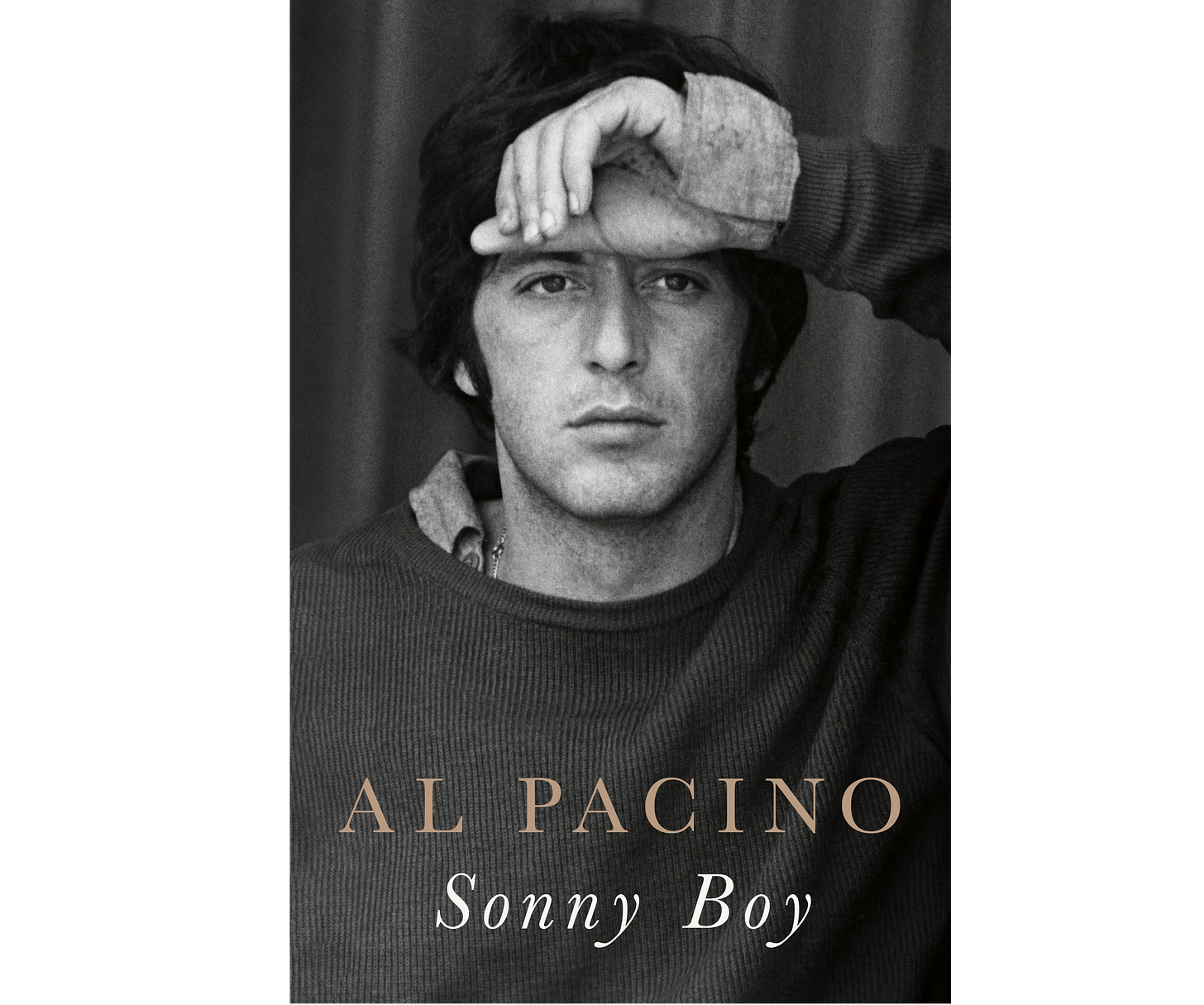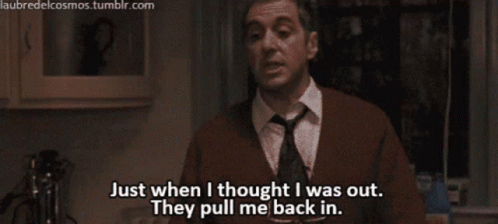Al Pacino and the Weight of Wealth
"There’s almost nothing worse for a famous person—there’s being dead, and then there’s being broke." -Al Pacino
In 2011, Al Pacino went broke. “I had fifty million dollars,” he writes in his new memoir Sonny Boy, “and then I had nothing.”
Pacino grew up poor in the Bronx. Life before making it as an actor was rough. “I tried it as a busboy and I didn’t make it,” he remembers. “They caught me eating off the leftovers from the tables. That’s how hungry I was.”
With that kind of childhood, I would have expected him to be extremely cautious and conservative with his money. I would have assumed he would avoid losing his money at all costs. Instead, he went broke twice.
The second time he was 70 years old, and the comeback was difficult. That’s when he joined Adam Sandler to make Jack and Jill which has a 3.3 score on IMDB. That must have been a difficult movie to make for an actor who adores Shakespeare and calls Chekhov his savior. “I never got into doing acting for money,” Pacino writes. “Except when I went broke. Then I got into it.”
“My life was costing me a fortune,” he writes, “my staff was getting bigger, and I was taking care of two homes, my apartments, and an office, and supporting the households of my children. I was spending three or four hundred thousand dollars a month…”
So what, you may ask? We know that’s not smart. Well, even he knew that. And yet he did it, twice. What he did is not as interesting as why he may have done it.
Pacino made it to the third money reality, abundance, and his memoir is filled with ambivalence about it. At times, I wondered if his wealth felt like a weight, whether a part of him rejected it.
“I've known very bright people that do not have money minds,” Warren Buffett once said, “and they can make very unintelligent decisions.” We don’t get to choose what kind of “money mind” we have. I used to think education was key. The more you learn, the more you wire your mind for success. But people like Pacino and Leonard Cohen had access to the best resources and advice, yet they went full circle.
I believe we all carry a collection of unconscious ‘money baggage,’ like a boulder. This weight makes the journey more difficult. It may block our sight or get in the way. It could even, as happened to Pacino, overwhelm us at a time of weakness and drag us back down in a tragic act of self-defeat.
Of course, this is an exercise in speculation. I don’t know what really went on in Al Pacino’s head. I suspect he doesn’t know either. The mind is too complex and memory plays tricks on us. Even so, his book offers a unique glimpse at how issues of mindset, identity, insecurity, and guilt can shape the relationship to money.
Let’s start with Pacino’s tone of helplessness. “Somehow I had managed to go broke,” he writes. “I could say I got taken advantage of. I could blame my accountants. I could blame Marty Bregman, who had put me into some sort of tax shelter that went south. I could blame myself, but then I’d have to take responsibility for my own actions.”
That’s a theme throughout the book. He reflects on bad money behavior with a kind of shrug. The first time he went broke, Diane Keaton confronted his lawyer.
She was practically grabbing him by the lapels: “No, tell me who he is.” He started to speak, but Diane jumped in again: “Yeah, you’re going to tell me, ‘Oh, he’s an artist.’ No. He. Is. An idiot.”
I just stood there. What could I say?
Diane went on: “He’s an ignoramus. When it comes to this, you’ve got to take care of him.”
And he just… agreed. “She was right. I didn’t understand how money worked, any more than I understood how a career worked. It was a language I just didn’t speak.”
When it came to business, he needed to be taken care of (Fredo in The Godfather comes to mind…). I think this defeatist mindset was formed in the poverty of his childhood:





